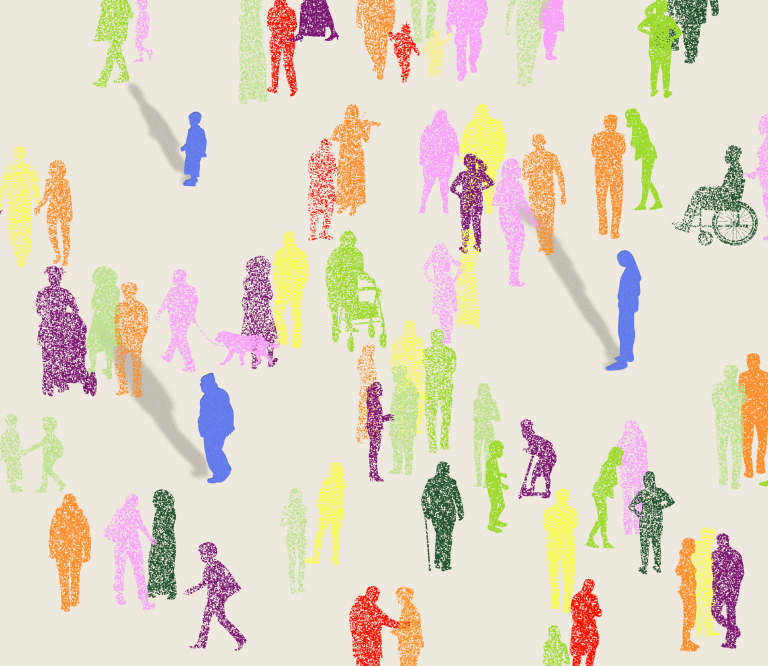Interview with Timmy Le (Humans of Neuroscience)
- Simply Neuroscience
- Dec 29, 2022
- 4 min read

Timmy Le is a first-year biomedical science Ph.D. student at the University of Massachusetts Medical School. He holds a bachelor’s degree in biochemistry from The Catholic University of America and a master’s degree in neuroscience from the University of Hartford. You can find him on Instagram at @brain_nerd_timmy.
What did you want to be when you grew up?
What I wanted to be growing up was different from what I am doing now, which shows you that having an open mind in regards to your choice of career is something to consider. When I was about four or five years old, I wanted to be a physician because the thought of helping others in the moment of weakness seemed appealing to me, since I grew up with cerebral palsy. However, as I got older, I realized that I could help others in different ways‒ specifically, finding out new things and ways to apply it to medicine.
How did you discover your interest in the brain, and when was that?
I discovered my interest in the brain after finishing my undergraduate studies in biochemistry, which is a reminder to those who just finished undergrad that they do not have to have it all figured out by the time they graduate. Specifically, I realized this when I was reading books about medicine since I was hoping to go to med school at the time, and there was something about the brain that caught my interest. This interest grew when I took an introductory neuroscience course, and the instructor convinced me to go to grad school for neuroscience just by her passion for the subject.
What is your current career and involvement in neuroscience and/or psychology?
I am currently a first-year biomedical science Ph.D. student who hopes to specialize in neuroscience.
Have you experienced any barriers or obstacles in your neuroscience and/or psychology journey?
One of the challenges that I faced in my neuroscience journey was finding a good mentor in the field to help me get to where I am today. Luckily for me, I have had great professors in the past who continue to support me to this day! I am thankful for them, especially my professors in the neuroscience master’s program at the University of Hartford.
How does neuroscience and/or psychology impact your everyday life?
I am always thinking about it! I enjoy thinking about the mechanistic relationships occurring within the brain and how to develop new experiments to study those relationships.
What lessons or values have neuroscience and/or psychology taught you?
Generally, science is a very humbling field because at one point or another, failure will happen, and it is crucial to be resilient and continue forward with the project. However, if I had to pick one thing, it would be the ability to be flexible. This is because sometimes you have to run additional experiments that you did not plan on running that week, or negative results lead to a new path that is worthy of exploration.
What are some of your happy memories in neuroscience and/or psychology?
Some of my happy memories in neuroscience would be meeting people in the field and learning about their research projects, especially at conferences, since it affords you the ability to formulate fresh ideas and build new possible collaborations. The most memorable thing in my journey would be [working with] astrocytes (a type of brain cell) for the first time because I get to tell my non-science friends and family that I grow brain cells in the lab.
If you could change one thing about your journey with the brain, what would it be?
I would start sooner!
Why is neuroscience and/or psychology outreach or STEM outreach in general important to you?
STEM outreach is near and dear to my heart because growing up, I lacked role models who would have helped me realize how great science is! Also, I was not what most people consider a great science student growing up, which would have discouraged me from the sciences altogether if I had not had the goal of being a physician. Furthermore, there might be a young student somewhere out there who might be thinking they are not good enough to be a scientist, but in reality, they have an abundance of raw scientific potential that the world needs.
Also, the discoveries that scientists make in the lab are not isolated to the lab bench, and they have real-world impact, whether they are small or large. These impacts affect everyone, and the general population needs to understand this in the most accessible way possible so that scientists are not alienating them.
Do you have any thoughts you would like to share with younger generations of students interested in the brain?
Have fun! Be curious! Ask a lot of questions because that is what scientists do! Most importantly, don’t be afraid of being the only person that is interested in the brain. If this is something that you are interested in learning, then go for it! Everyone has a unique life perspective, and the field needs your fresh, new ideas!
Please note that this interview with Mr. Le was conducted in 2019. We have recently reformatted and made minor clarity edits to publish on the Simply Neuroscience Blog!











Comments